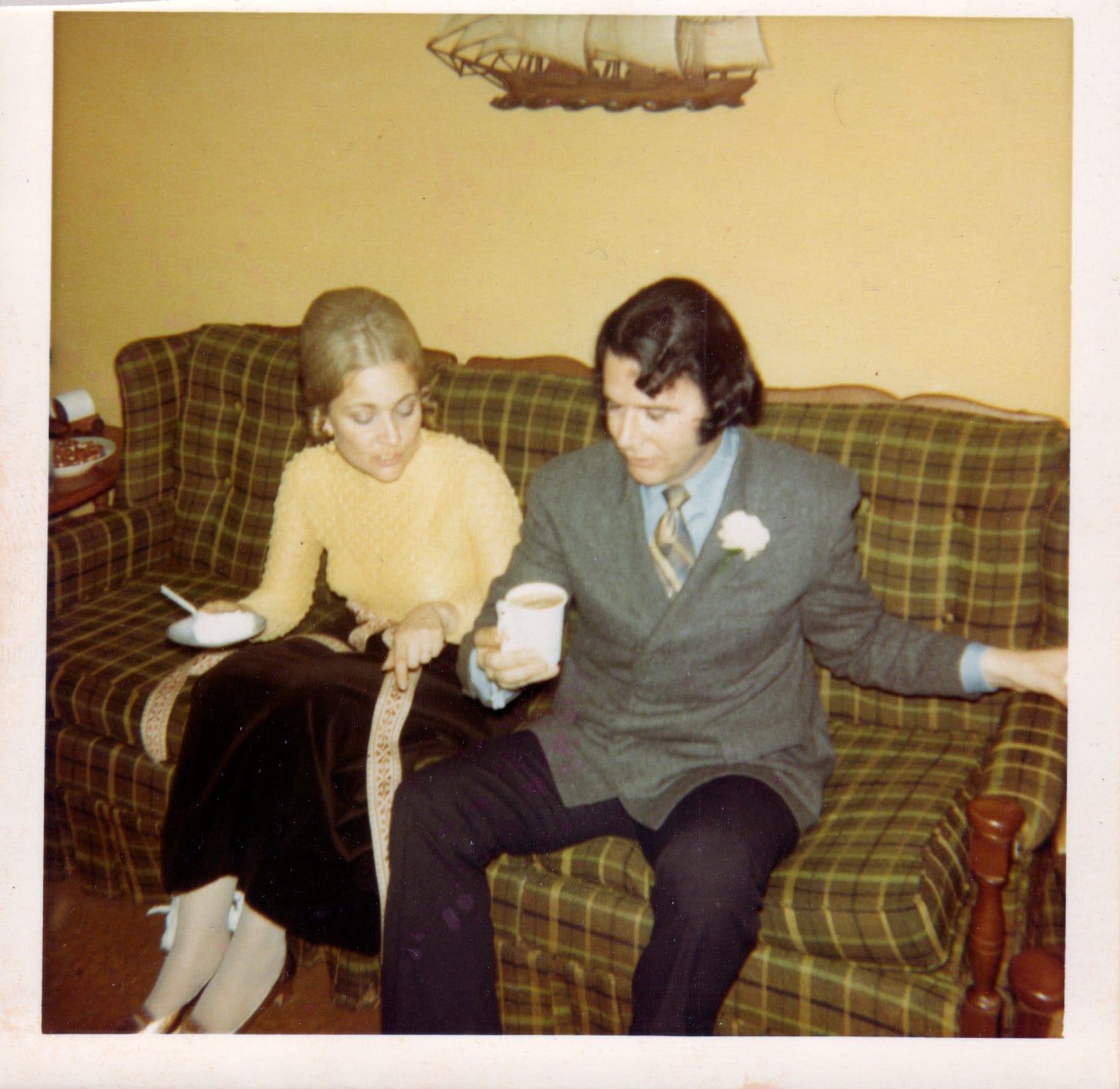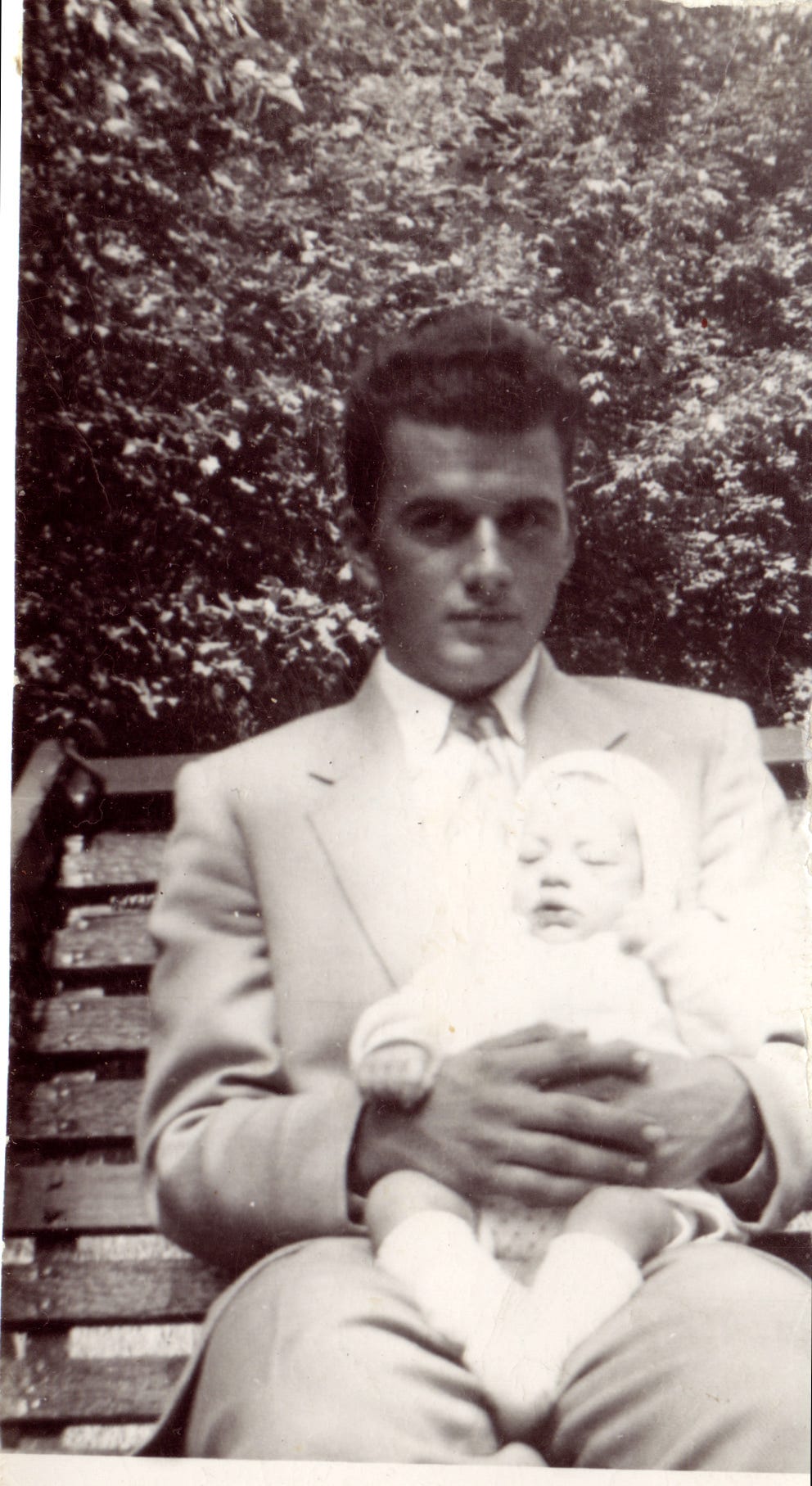A Child of the Great Depression
the 1930s, not to mention the 40s & 50s, were a weird time to grow up, and in some ways, my dad never did
Being a one-trick pony is better than being a no-trick pony.
But being a 10-trick pony is worse than being a no-trick one.
All through the modern age of entertainment there have been multi-talented people who dazzle us with their versatility. I always marveled at how Steve Allen could ad-lib, play straight, play piano, write songs (hits!) and also write scholarly tomes. How Ernie Kovacs could do several kinds of comedy; character based, conceptual, visual, silly, smart, and how he used music in such a unique way. Plus, he could act, write, and handle Edie Adams like a Dutch Master.
Groucho was another multi-talent. Not just a comic actor, he was as funny (sometimes funnier) than his writers. As a quizmaster, a usually dull and thankless role, he became the king of the genre for 10 years on TV, with his quick wit, his ability to relate to ordinary people, while simultaneously making fun of them. Oh, and he also wrote books, and became famous for his letters, which were later turned into a book, The Groucho Letters.
There are many other show-biz geniuses, but these 3 were the ones I watched growing up, thinking I’d like to be like them. Thinking I could.
And why was I watching this somewhat esoteric fare at 6 and 7 years of age? My dad.
mom and dad sitting on their early-american couch in the late 60s
When you’re a kid, you tend to be influenced mainly by your parents’ taste. If they root for the Knicks, chances are you will. If they like Veal Parmigiana, you learn to like it. Kids trust their parents, at least initially.
There was a lot of stuff my dad liked that I just didn’t get. Jazz, for instance. My favorite jazz recording he had was ‘Caravan’ by George Shearing, which wasn’t exactly the most adventurous jazz out there in the 50s. I also wasn’t too big on classical, though I liked Segovia-style guitar music. Growing up, my family never had a car, so it makes sense that my taste was a bit pedestrian, I guess.
But we shared a love of comedy than spanned the decades. The Marx Brothers, for instance, were already old news by the time I was born. But it was new to me. Once he took me to a movie which featured the classic film comics of the 20s and 30s, like Harold Lloyd, Buster Keaton, and so on. I enjoyed it, but without dialog there was none of my favorite comedic device, ‘wordplay’.
To me, my father invented wordplay. Everything was fair game when it came to reinterpreting the English language. Instead of watching a baseball game at the Polo Grounds, he would suggest going to the ‘Polio Waters’. If someone famous died unexpectedly, he’d suggest it was probably ‘sewerpipes’. He always loved the Swedish actress ‘Ingrown Toetail’. And there was no explanation given for these malaprops. He would simply say them as if they were commonly understood. As a little kid, it was sometimes confusing. As an older kid, it was sometimes embarrassing.
Having an eccentric dad had its good and bad points. He would sometimes be pretty hard on me, like when we’d go play ball on Saturday mornings. He’d been a pro baseball player briefly in his younger days, and was also a former Marine, so he wasn’t too easygoing when it came to less-than-full effort. As a kid, I tried to live up to his standards, but also would slip into frustration if I failed, followed by resignation, which wasn’t ok with him. One time he got so mad at me for giving up, he abruptly stopped the game, and didn’t say a word to me all the way home.
He also did what I later learned to be ‘strange’ things. For about a year, he collected sound bites of historical events and created a radio show, with himself as narrator. I’m not sure what his objective was, but I later learned that other kids’ dads didn’t do stuff like that. He had an early tape recorder, and he’d occasionally interview me, and apparently I was funny (though I had no idea why). He’d play the tapes for visitors, and everyone would get a kick out of it, and though I didn’t see the humor, I was glad they were. Every Halloween Eve, he’d play a recording of Orson Welles’ ‘War of the Worlds’, the radio broadcast that fooled a lot of people into thinking we were being attacked by Martians. Before the show, he’d give the small group of listeners (a few people he’d invited randomly) a historical, contextual background of the era, including examples of FDR’s Fireside Chats, and the rapid-fire delivery of the radio announcers of the time, exemplified by Herb Morrison’s live account of the explosion of the Hindenburg, with his famous exclamation, ‘Oh, the humanity!’ He’d explain how radio stations would sometimes cut away to live dance music by orchestras in hotel ballrooms, to fill space between live news reports. By the time he actually played the Welles show, he’d transported those whom he hadn’t lost in this sea of decades-old esoterica, back to a simpler time when people believed in media and martians.
i came along in 1953, when he was 23
Maybe that was the beginning of my idea that I could entertain people. Sadly, I had no obvious skills. I couldn’t sing, draw, dance, or tell jokes. I was good at school work, but no one finds that entertaining. Maybe if one could get applause for getting an A on a test, my whole life might have gone in another direction.
I started being purposely funny around 9 or 10 years old. I asked my parents for a typewriter, and my dad took me to a somewhat seedy part of Brooklyn, where the el train turned onto the Smith St. tunnel, to a second-hand store where he picked out an old Underwood model, probably from the 1920s. I decided I would make a ‘newspaper’, and sell it to the kids in my class. I soon learned that, in lieu of actual news, I’d have to make stuff up. I was stuck at that point, since written humor is hard enough for 30 year-olds, and I was a third of that. My dad jumped in with some self-composed poems and comic strips, and while they weren’t too funny, at least they gave me an idea of where to start.
Interesting sidebar: I remember discussing the Beatles with him on the way back from Smith St. They’d just been on Ed Sullivan for the first time, and I’d recently gotten interested in pop music. He declared he didn’t think much of them, and he thought they were ugly. That’s the first time I remember experiencing a generation gap with him. And, as it turned out, one of the last times. He came around to admiring the Fab Four, as well as other adventurous rock music in the late 60s.
My dad, by then, was in the midst of a mid-life depression that was, on the surface, triggered by the assassination of JFK. We grew apart a bit in those years, as he was, more often than not, sullen and unenthusiastic.
It was during that period, between 1963-65, that I began to become an individual. Out of necessity, I became the upbeat presence in the household, and began listening to more and more of the great music coming out in those exciting years, while becoming less and less interested in school, or anything else that seemed ‘conventional’. I campaigned for William F. Buckley when he ran for mayor of NYC in ‘65, not because I necessarily agreed with his views, but because he represented an alternative. To me, he was an example of something I admired: intellectual intercourse (I was still too young for the other kind). He suggested bike lanes on NYC streets, and people laughed. Imagine! He was such an oddball.
My father eventually became able to work and function again by ‘65, and got a job at Pfizer, as a Purchasing Agent. This meant salesmen were always giving him things, especially tickets to events. He didn’t like riding the subway, as he’d have panic attacks in crowds, so I got to go to all the events myself. Many Mets games, in box seats! Once I got tickets to see The Doors at Felt Forum, first row center. I got trampled before the night was over.
Today would have been his 93rd birthday. He died at 86, which was a pretty good run. He remained somewhat eccentric to the end. His non-PC ways became a bit more embarrassing to us young ‘uns, but he was fun and sharp and silly well into his 80s. He was also confounding at times, and strangely helpless. I became his surrogate parent after he retired from a rewarding job at Bard College, helping poor kids get into those hallowed halls that were the domain of the rich and white prep school types. Then, once accepted, he’d guide them through the challenging Bard academic gauntlet. He was a very caring person that way, and I’ll always admire that part of his life. It’s something I could never do myself, because I was busy looking for applause.
Right before he died, he was invited to a ceremony at Bard, honoring 2 of his mentees who’d gone on to success and fame in the world of Theater. In their thank you speeches. they both singled out my father as one of the main reasons they succeeded in life. So, it turned out he got the applause after all, and he got it by cheering on others.
Happy Birthday, Dad. I’m so glad you didn’t commit sewerpipes.






I just finally ordered your book on Amazon!
Can't wait to read Kid69.
Love! Happy Birthday Daddio! ❤️